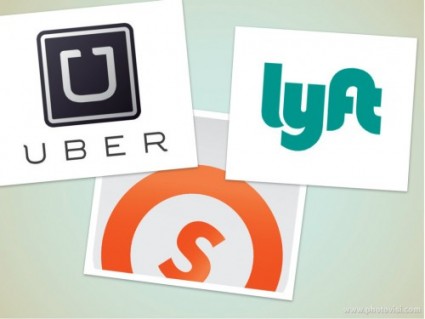March 2, 2015
By: Kelly Diamond, Publisher

Try getting a city to let go of that kind of revenue and extortion. It goes almost without saying that the barrier to entry in many of these middle class occupations are ridiculously high. Having to choose between paying-to-play or buying a house seems a rather sick proposition from a government supposedly looking out for the little guy. If you are interested in reading more about that, please click here: “Tyranny of the Taxi Medallions”.
But in smaller markets, some headway is being made. In the quaint little town of Portsmouth, New Hampshire, the Taxi Commission is recognizing how obsolete it has become. They proposed to eliminate most of the regulations, including the medallions, and disband itself!
I mentioned before that there is absolutely political favoritism in the tax and regulatory codes in the US. Those who fall in the group with more costly regulations and taxes tend to want to bring everyone else down with them. Just like businesses who are suffering want to drag down their competitors rather than raise their own standards.
In an unexpected, but laudable move, the Taxi Commission thought it best for it to get out of the way. Goodness knows I’d love to see several other regulatory agencies realize their lack of relevance, the burden they place on the economy, and decide to disband! But we take the victories where we can, right?
The reality is, there aren’t enough cab drivers for all the after-hour customers that need rides. And after unloading your wallet at a bar, there isn’t always enough money to pay for a cab. The Taxi Commissioner thought opening up the market would ultimately keep Portsmouth safer. And he’s probably right.
Remember the unlicensed ride shares in Austin, TX I wrote about? It was an affordable alternative to a cab or drawing straws on who would be the designated driver. The cab was 4X more expensive. Perhaps Uber would even be more expensive than this van share. I don’t know. But the mere practice of giving someone a ride has become quite the grey area these days:
- If I stand on the side of the road and seek a ride, and someone offers it to me for free, that’s hitch hiking. That’s illegal.
- If I stand on the side of the road and seek a ride, and someone offers it to me for a fee, that’s ridesharing. That’s in a legal limbo right now.
- If I stand on the side of the road and seek a ride, and someone offers it to me for a fee, but has a city issued medallion or license, that’s hailing a cab. 100% legal.
- If I get a ride from a friend, that’s carpooling.
- If I get a ride from a friend, but pay for it, that’s ride sharing which takes us back to the legal limbo.
Interestingly enough, it’s one of the easiest services to provide, but has become unbelievably expensive to do. Uber and other ride sharing companies have presented quite a challenge. The success seen from these ride share companies/applications both as patrons and as drivers is undeniable. The price is competitive, the service seems to be fine, and the profits are there to be had.
The protectionist policies are proving to be expensive, and likewise they are not sufficiently meeting market demands.
I saw an interesting write-up in a letter to the editor regarding Uber coming to Portsmouth. It was a hotelier who had moved down from Maine. He remained silent as people made outrageous claims each time a business wanted to start or come to Portsmouth: “there are too many tourists, that helicopters will crash into schools, that trains are too dangerous to operate in our community, that a skating rink dishonors our history, that Uber is a dangerous operation that will result in frequent crashes and death, that Airbnb is on a quest to ruin neighborhoods, and that the best use of the port is as a parking lot.”
But his letter goes on to take a very Dagny Taggart turn. He goes on to say how great it would be if everyone could enjoy protection from competition and ensure that he turns a profit. But the unintended consequences are many and ultimately not worth it. The benefits of competition, however, far outweigh the purported benefits of protectionism:
“Let’s take a moment to consider the outcome if all businesses in Portsmouth were artificially limited by the city government. When there are fewer competitors in a market, businesses do not have to compete on price, nor do they need to provide a high quality product. In fact, it is the consumer — you and me — who lose in artificially constrained markets. Prices are higher, quality is lower, choices are fewer. The only winners are the special interests who have a license to avoid competition. Competition makes all businesses better.
“I can tell you that having more competition in the Portsmouth hotel market makes the Hotel Portsmouth better. We have to work harder, be better, and ensure that we get the word out to our potential customers. Rates are kept in check by competition, and the product is stronger. In fact, even as a hotelier, I welcome Airbnb to Portsmouth for the same reason I welcome Uber. It will make for a healthier industry and a more vibrant Portsmouth.”
In the end, ride sharing has turned the taxi industry on its ear… and that’s a good thing. People have seen the benefits and no amount of fear mongering will undo that. It might not be a bad thing that competition come into the market as a repackaged version of an existing service. Perhaps that is the back door to deregulation?
For now, though, congratulations to Portsmouth, NH for taking a pro-business stance! Here’s hoping other markets follow your lead after seeing your success.

